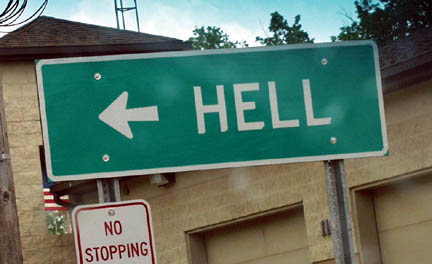(This is a guest post by Martin Meenagh)
Did you know that the ‘New Tory’ organisation fronted by David Cameron is using its power in Ealing to shut down a pioneering refuge for minority women who suffer domestic violence?
Mr Cameron, and Boris Johnson, have refused to respond to any requests to reopen the decision of Ealing Council to withdraw funds from the Southall Black Sisters. They were established in 1979 and have a reputation for absolute integrity in their fight for ‘struggle not submission’.
When queried further, Tory Councillors have blamed Labour’s determination to crack down on ‘ethnic’ divisions and establish British identity as the reason to destroy the Black Sisters’ work.
Southall Black Sisters are an organisation that supports black and asian women, and indeed women of all colours, and their phonelines are open nationwide. The only qualification for seeking their help is that you happen to be suffering violence.
SBS have already helped change the law for beaten women. They were deeply involved in the landmark Karanjit Ahluwalia case for instance. Mrs Ahluwalia was regularly beaten senseless by her husband, who returned home one night and decided to threaten her with a hot iron, demand £200, and announce that he would beat her near death in the morning. Then he went to sleep. So she, deranged with fear and determined to free herself after what she viewed as provocation, acted first.
Provocation is one of the defences built into the 1957 Homicide Act. England had no written statute concerning murder before that date; instead, case law, with all its complications, defined the crime. The Act gave a written definition (drawn from the cases) but also built in two major defences; provocation and diminished responsibility.
Provocation meant that an individual of the same age and sex as the defendant would have been provoked as the defendant was, and would have lost their self control and acted in the same way. It was often invoked by men, but the loss had to be immediate and any gap between the provocation and the loss of control–even going into another room or waiting–did away with the defence.
Diminished responsibility was the ‘crazy woman’ or ‘alcoholic’ defence; a disease of the mind acted upon by the external cause that caused temporary insanity. Many women neither wanted to rely upon it nor could they, when battered woman syndrome was not recognised.
Mrs Ahluwalia poured two pints of petrol over her worthless husband and set it alight after a decade of violence. He died. She was tried for murder, and was supported by the Southall Black Sisters in her well documented defence of provocation because of all the ten years’ worth of multiple beatings and threats. She was convicted and won her appeal.
She was the first victim of such experiences to have the idea of cumulative provocation recognised by the court of appeal.
No one else other than the SBS would have helped her. They area pioneering organisation of integrity and anyone remotely decent would surely support them. That they are styled ‘black’ and ‘sisters’ is of course relevant to their mission. But in another sense it’s meaningless. They are helping hold our common society, strained as it might be, together. In supporting them, we can all do what’s right as citizens.
Over the past few days, the story has been unfolding at Pickled Politics, which you can read about here.
The Guardian and the New Statesman have also picked up on the story, and petitions are ongoing at the number 10 website and on facebook. You can sign up at ‘Save the Southall Black Sisters’ at this address.

Go on, have a go at making a difference.
